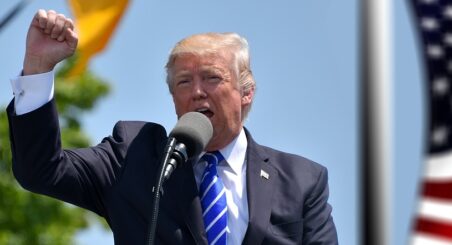The Meta and Google platforms have stopped carrying political, electoral, and social issue advertising in the EU this October. This change takes place after the European Union TTPA (Transparency and Targeting of Political Advertising) regulation entered into effect on 10 October. Both companies say the new legislation is “unworkable” and have decided to stop offering those services.
While the tech giants focus on compliance issues, critics worry about the democratic and social impacts of this move. They warn that the bans will leave Europe’s online civic space less plural and critic the EU’s timing and legal uncertainties.
Smaller voices lose their reach
The disappearance of political ads has far-reaching consequences for Europe’s online and offline debate. According to research by the European Digital Media Observatory, around 30k political ads were placed online during the 2024 European elections. This investment was worth €87m in total spending.
For Sam Jeffers, founder of Who Targets Me?, paid online ads were essential for smaller players and moderate voices. They offered an affordable way for new actors to join the debate. “It’s quite helpful for new campaigns that don’t have an existing supporter base to be able to spend a small amount of money and reach a specific audience”, he told EU Perspectives. “A local politician could spend €100 and reach voters in their town. Now it is going to become much more difficult”.
Traditional parties, who are trying to talk about complex policy solutions, will struggle to reach anybody – Sam Jeffers, founder of Who Targets Me
You might be interested
Mr Jeffers also warns that the ban will end up amplifying the loudest and most polarising messages. “The far right and the far left in Europe tend to do quite well because they say things that algorithms like”. On the other hand, he sees “Traditional parties, who are trying to talk about complex policy solutions, will struggle to reach anybody”.
Jakub Szymik, founder of CEE Digital Democracy Watch, shares similar concerns. To him, this change “will weaken democracy” because it “limits the opportunity for the smaller actors, including NGOs and civic groups, to build their audiences and connect with their supporters”. He adds that the vacuum left behind could favour manipulation instead of accountability, as “bad-faith political actors will move to coordinated, shadowy tactics, even more than they are doing now”.
As a response, 17 civil society organisations got together to urge Brussels to act. They argue that the platforms’ withdrawal does not absolve them of responsibilities under the Digital Services Act, which obliges major platforms to protect civic discourse. “If Europe wants an online public sphere where democratic voices, not just the loudest or most divisive, can be heard, then Google and Meta must join back in the conversation”.
Legal and timing uncertainty
The timing of the TTPA rollout can be described as chaotic. The European Commission released its implementation guidelines on 8 October, just two days before the law came into force.
Szymik criticised this timing and pointed at the uncertain terms around what constitutes political content. “They invite to make arbitrary decisions on what type of content should be considered political. It is not clear what is the overlap of this regulation with national law and we have doubts whether the local authorities are ready for good quality enforcement”.
As well, Mr Jeffers considers that the lack of clarity created a legal minefield. “They published their guidance yesterday, and the regulation comes into force tomorrow”, he said. “That’s a lot of uncertainty. And when you add the risk of fines up to 6 per cent of global turnover, it’s easy to see why a lawyer would say it’s better to walk away”.
Adopted in March 2024, the TTPA was heralded as a landmark step toward transparency in European political advertising. It requires every political ad to carry a clear label disclosing its sponsor, the linked election or legislative process, and used targeting or delivery techniques backed by a transparency notice with further details on cost. It also bans political ads from non-EU entities during the three months preceding an election or referendum.
Google erases digital archive
The most unexpected consequence of the ad ban has been Google deleting its EU Political Ads Library. It erased seven years of searchable data on election advertising across all 27 member states.
The move alarmed researchers and watchdogs who relied on the archive to track political spending and detect patterns of messaging in online campaigns. “The political ad archives were one of the few windows into the world of online influence”, said Mr Szymik.
The political ad archives were one of the few windows into the world of online influence – Jakub Szymik, founder of CEE Digital Democracy Watch
Sharing researcher concerns, Mr Jeffers called Google’s move “malicious compliance”. “Losing the ad library makes it harder for historical analysis or understanding how people spent money in the past. For example, what sorts of messaging they were using”, he added.
Without paid tools to target audiences, he fears political communication will move underground. For example, to private messaging groups and networks that are harder to monitor. “Over the last few years, you would look at the political ad libraries of the platforms and see roughly who is spending money where”, Jeffers noted. “Where does all this money go now instead?”
Hungary’s early test
As online advertising channels close, political communication strategies need to adapt. Hungary may offer the first glimpse of what comes next. With national elections planned for April 2026, the effects of the ad bans are already visible.
Hungary is among the EU countries spending the most on online political ads, with an estimated €1.2m spent in 2024. Since the ban announcement, the ruling Fidesz party has changed strategy, returning to more traditional methods to rebuild its communication networks.
“Fidesz and its supporters launched a whole bunch of initiatives to try and build up these lists”, Mr Jeffers says, referring to efforts to collect contact information and build direct channels with voters. “They’re creating ways to communicate directly without having to buy ads”.
Looking at what to expect as campaigns seek alternatives to paid amplification, Jakub Szymik said to be watching how other platforms respond to the vacuum left by Meta and Google. “We will be keeping a close eye on X, which neglected its responsibilities in this space before”, he said. “We would be positively surprised if anything changed now”.











